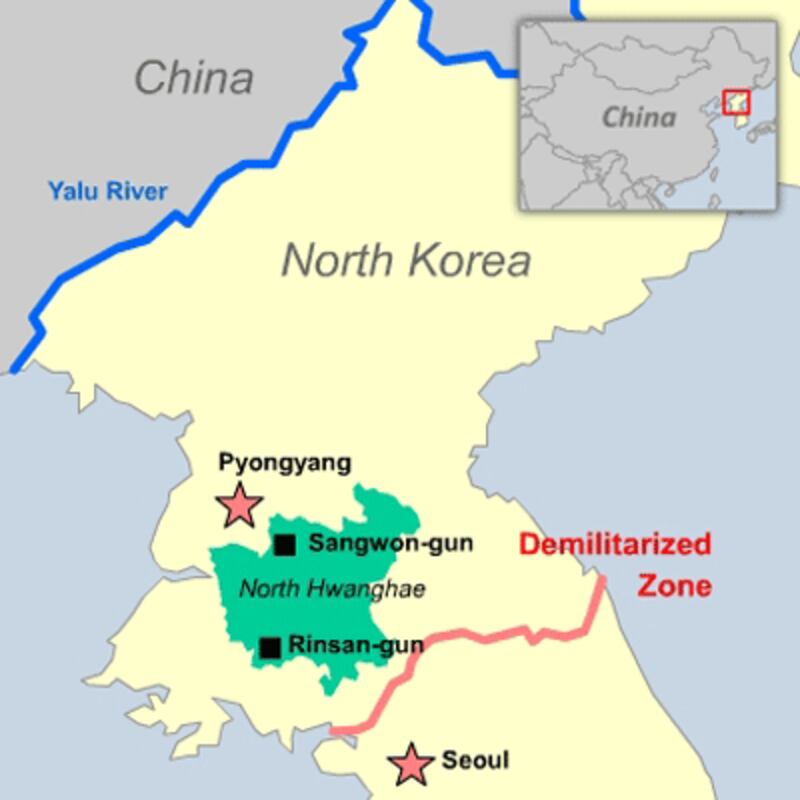Opium poppy farming in North Korea seems to be flourishing even as the nuclear-armed state begs for food aid amid reports of crop failures.
The reclusive, government-run poppy farms pay their workers handsomely, in some cases salaries that are more than double earned by average workers in the hardline communist state, according to sources inside North Korea.
College students are also mobilized to help in drug cultivation during their spring break, the sources said, speaking on condition of anonymity.
News of the booming drug cultivation came as impoverished North Korea requests for food aid from the international community after an exceptionally harsh winter reportedly hit crop yields.
Some U.S. and South Korean officials, however, voiced concern that the North Korean regime may be exaggerating its needs.
In an indication of the thriving drug farms, one source said, large poppy fields occupy the country's western and southernmost areas of Rinsan-gun and Sangwon-gun in North Hwanghae province.
There is believed to be one large-scale opium poppy farm in Rinsan-gun but it is difficult to pinpoint its location through satellite mapping, the sources said.
In addition, there is a cooperative-like farm surrounded by hills south of the Pyongyang-Wonsan highway that traverses Sangwon-gun, where opium poppy fields lie among homes in the area.
Sangwon-gun used to be a part of Pyongyang, based on U.S. satellite pictures taken in October 2010, but was incorporated in the North Hwanghae Province one month later after the North Korean capital area was trimmed through a redrawing of city boundaries.
“The plots in Sangwon-gun that are not visible from the motorway are poppy fields," another source said of the Gwiil-ri cooperative farm.
"For fear that crops might get mixed up if other seeds are planted, these plots are used exclusively for opium poppies," the source said. The workers in the poppy farms are all volunteers.
Better salaries

Agricultural workers at the Gwiil-ri farm receive their salaries monthly from the government unlike other cooperative farmers, who receive them once a year.
“Workers [in Sangwon-gun] who distinguished themselves last year received 100,000 North Korean won in cash, or about U.S. $30. Compared to workers at other cooperative farms, they receive more money, and are quite satisfied,” the source said.
An average worker in North Korea earns about 3,000 won per year, which on the black market fetches U.S. $1.
Every May, when students of all ages are mobilized to participate in rice planting campaigns, some college students are sent to work on opium poppy farms instead, sources said.
According to one North Korean source, “around this time every spring, North Korean college students thin out the opium poppy seedlings.”
“Students mobilized to work on poppy farms spend the whole day in the scorching sun, without any shade to protect them. They get sunburned, and their skin ultimately turns dark,” the source said.
The North Korean authorities keep information on the opium poppy cultivation tightly under wraps, and prohibit local residents from talking about it.
All workers have been warned that “opium plants should by no means be taken out of the poppy farms.”
According to workers on the farm, opium is used as an "analgesic and ingredient" in a variety of pharmaceutical products, the sources said.
Nepotism
They also emphasized that nepotism is widespread in poppy farms, with same families involved in the cultivation business, making it "hard for outsiders to get close."
Recently, the chief of immigration and passport affairs based in Hweryong city in North Hamgyong province was caught by the authorities for hiding large amount of foreign currency as well as drugs in his residence.
Hweryong, known for being the hometown of Kim Jong Suk, North Korean leader Kim Jong Il’s biological mother, is a city crumbling under the weight of crime and corruption.
Rumor has it that after hearing the report about the May 12 arrest of the immigration chief, Kim Jong Un, the anointed future leader of North Korea, harshly criticized the officer as “an enemy of the party and revolution.”
A source in Hweryong told RFA that the arrest followed a raid on the immigration chief's house, where U.S. $170,000, 90,000 Chinese yuan (U.S. $14,000), and one kilogram (2.2 pounds) of highly addictive methamphetamine were found.
The immigration official's activities were uncovered when the State Security Department arrested two brothers accused of facilitating the transmission of funds from North Korean defectors in South Korea to their families in North Korea via China.
The official is believed to have earned illicit funds by acting as a broker helping smugglers get passports for North Korean nationals.
What had State Security Department officials really puzzled was that, together with foreign currency, a large amount of methamphetamine was found in his house, the source said.
Trafficking of methamphetamine by private North Korean groups has increased along the North Korea-China border in comparison to last year, according to media reports cited by a U.S. State Department report to Congress in March.
Early this month, police in northeast China detained 10 people and seized a haul of methamphetamines smuggled into the country from North Korea, Chinese state media said.
The U.S. and South Korea accuse North Korea of involvement in a wide range of illicit activities, including drug smuggling, to raise funds for a government under wide-ranging sanctions due to its nuclear program.
Reported by Min Suk Choi and Moon Sung Hui for RFA's Korean service. Translated by Grigore Scarlatoiu. Written in English by Parameswaran Ponnudurai.
